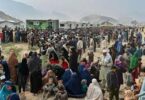The price hikes continue hitting the people hard, as soaring food prices and higher energy tariffs not only kept the weekly inflation over 43 per cent for the fifth consecutive week. The purchasing power of the masses has largely shrunk. The public is neither able to fully satisfy their personal needs nor can help revitalize the national economy by boosting domestic demand. According to the Pakistan Bureau of Statistics (PBS), the Sensitive Price Indicator (SPI) remained at 43.16pc in the week ending December 14 because of the high prices of sugar, pulses, eggs, rice, and other food items along with the energy tariff that sets at the top of all essential commodity as winter looms. According to the World Bank report, the high cost of living pushes 2 million Pakistanis below the poverty line on an annual basis while these figures exceeded 18 million in the current year.
The headline inflation has witnessed a sharp upsurge touching a historic high of 43.16 % during the previous week which is the highest one in the past six months. The prices of essential commodities and daily use items were seriously affected due to the increase in gas and electricity prices that gave birth to a new wave of inflation in recent days. Meanwhile, a lack of governance and failure in the implementation of official fixed prices further aggravate the problem of inflation in Pakistan. A comprehensive mechanism is in place under the Dupety Commissioners, Price Control Committees, duty magistrates, and Food Inspectors to check inflation and prevent hoarding of highly needed food items, yet all those arrangements failed in putting a curb on illegal profiteers and mafias that seriously hurt the poor masses. This alarming trend means the gains made by the country’s economy during the last few months are being reversed as the SPI touched the highest level since June.
Pakistan is passing through a difficult time, as the months-long political unrest and haphazard governance together with politically motivated policies of the successive governments plunged the economy into unresolvable crises and pushed the entire nation into unceasing ignominy. The high energy prices and massive taxation jammed the wheel of industry and rendered Pakistani exports expensive, and uncompetitive in the global market. A narrow tax base and low revenue generation increased the country’s dependence on foreign loans, while current account deficit and debt servicing threaten the survival of an ailing economy. The State Bank of Pakistan owes the sole idea of high markup to support economic lifeline while the government was compelled to receive loans and cash deposits from friendly nations and global lenders to sustain their rule, boost their politics, and run governmental affairs of the country. The leaders’ dilemma is surely unique, as the IMF and global institutions pressed them to increase taxes and raise the prices of commodities to overcome the budget deficit, whereas the public demands relief, subsidies, comfort, and development work in their areas. So far, the leaders-lenders nexus has always brought unbearable inflation and great pain for the masses instead of providing them relief.
There had been significant improvement in the National Economy along with a sharp reduction in inflation after the Special Investment and Facilitation Council (SIFC) implemented stringent financial and economic measures and brought foreign investment to the country. However, lax administrative control, corruption of government officials, and energy price hikes are resisting the momentum and reversing gains made during the past few months by the country. After the 18th Amendment price control and regulation is a provincial subject, hence the district administration and provincial governments must play their role in controlling inflation and providing relief to the public, that becomes crucial at this time when Pakistan is making concerted efforts to get out of persistent economic ailment.







